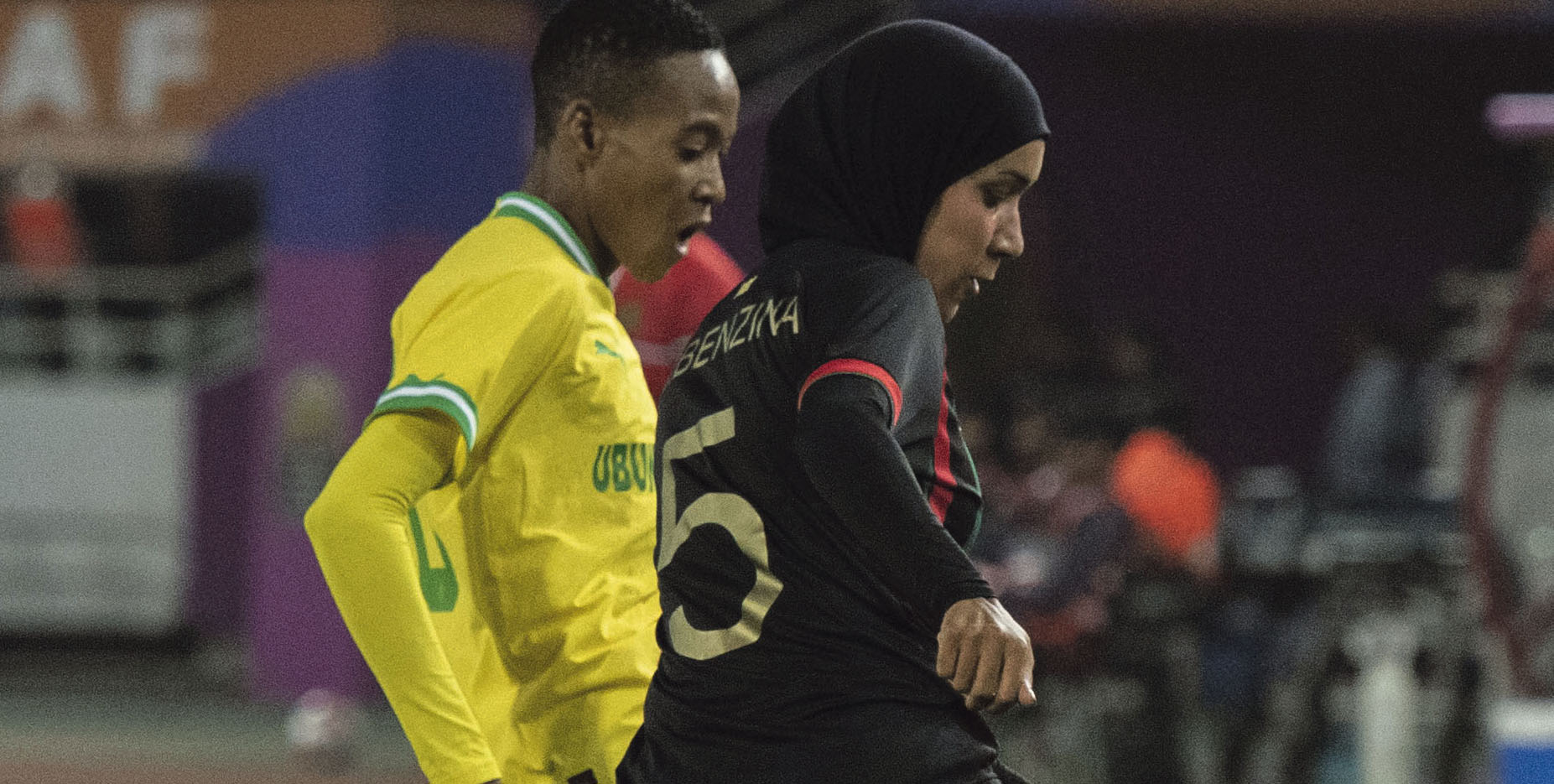
Photo: French channel CNews came under fire for airing Islamophobic remarks towards Nouhaila Benzina’s decision to wear a hijab.(Credit: Jalal Morchidi/Anadolu Agency)
Harun Nasruallah
Morrocco’s football team has been subjected to Islamophobic remarks by both British and French journalists during the Women’s World Cup.
The BBC was forced to apologise after one of its reporters asked Morocco’s captain, Ghizlane Chebbak, an “inappropriate” question before the team’s match against Germany on July 24. Morocco’s debut at the tournament in Australia made it the first Arab and North African team to qualify for the Women’s World Cup.
But it was an “unethical” and “dangerous” question directed at the team’s captain, Ghizlane Chebbak, about LGBTQ+ rights that has since taken centre stage.
“In Morocco, it’s illegal to have a gay relationship. Do you have any gay players in your squad, and what’s life like for them in Morocco?” the BBC reporter asked at the post-match media conference in Melbourne.
In response to the question, Chebbak winced, removed her earpiece, and looked to her coach, Reynald Pedros, before laughing. A FIFA official interjected: “Sorry, this is a very political question,” and asked the reporter to stick to questions relating to football.
“No, it’s not political, it’s about people,” the reporter replied. “Please let her answer the question.”
A BBC spokesperson said: “We recognise that the question was inappropriate. We had no intention to cause any harm or distress.”
A social media channel called SHE Scores Bangers, which covers women’s football content and shared a video of the conference, also criticised the BBC journalist’s approach.
“The uneducated assumption feeding into the stereotype ‘all women’s football players are gay’ this journalist expressed, is mind-boggling and should be refuted from the sport,” the channel said.
“Show me a clip where the Moroccan men’s national team got asked such at their World Cup – there isn’t.“’Do you have any gay players in your squad?’ is a question I’m dying to know what answer he expected for and if there was a single further thought on the impact this can have, just a single thought.”
The channel also hit out at the BBC journalist’s response that the question was “about people”, adding, “The ones you were going to endanger?”
Three days after the BBC was forced to apologise, French channel CNews came under fire for airing Islamophobic remarks towards Nouhaila Benzina’s decision to wear a hijab.
“This young woman wearing the hijab is essentially telling her teammates, ‘You are immodest.’ That’s what the hijab signifies. It means that a woman should not show her hair, her shoulders, her overall figure, that she should conceal her body as much as possible because a woman should be modest,” said Columnist Philippe Guibert.
He added, “That is the meaning of the hijab. So, I agree that it is an incredible regression.”
The 25-year-old defender Benzina became the first player to wear the hijab during a senior Women’s World Cup game when she started her team’s 1-0 victory against South Korea on July 27.
Guilbert’s remarks provoked widespread uproar, with many criticising the channel for attempting to transfer France’s contentious religious symbol ban onto a foreign athlete and an event staged outside of France.
“She is Moroccan, plays in Morocco, and participates in the World Cup in Australia, very far from your racist country. What is your problem?” asked one Twitter user.
Others on social media stated that his comments promote damaging stereotypes and Islamophobic views towards women who choose to wear the hijab, as well as an attempt to impose a narrow concept of modesty on varied cultures and religious practises.
“It’s extraordinary. Men puffed up with certainty to explain to her what her clothes meant to her. Fortunately, her playmates obviously don’t see it the same way,” another Twitter user said.
In 2007, FIFA banned the hijab from being worn during international matches, citing safety reasons.
The ban was lifted in 2014, before Muslim players wore the headscarves for the first time in a FIFA event during the 2016 Under-17 Women’s World Cup in Jordan. Meanwhile, France’s top administrative court upheld last month a ban on women football players wearing the hijab in games.
CNews is not alone in putting the country’s political agenda and domestic religious symbol discussions onto international athletes from various cultural backgrounds.
The French sports journal L’Equipe added fuel to the fire by calling Benzina’s hijab “highly controversial.”The Moroccan men’s team was also subject to Islamophobic remarks during the men’s World Cup in Qatar last year.
A German TV host for Welt sparked uproar when he accused the Moroccan players of “posing with the Islamic State gesture” following their quarterfinal victory. In the widely circulated online news clip, three players can be seen smiling, holding a Moroccan flag between them, and raising their index finger, a centuries-old celebratory gesture used by Muslims to accentuate the oneness of God.
Welt, one of the country’s most popular TV channels, said the gesture caused “irritation” because it’s the salute the IS used after conquests.
The segment went on to suggest that the Muslim players were unaware of the importance of the upheld index finger.